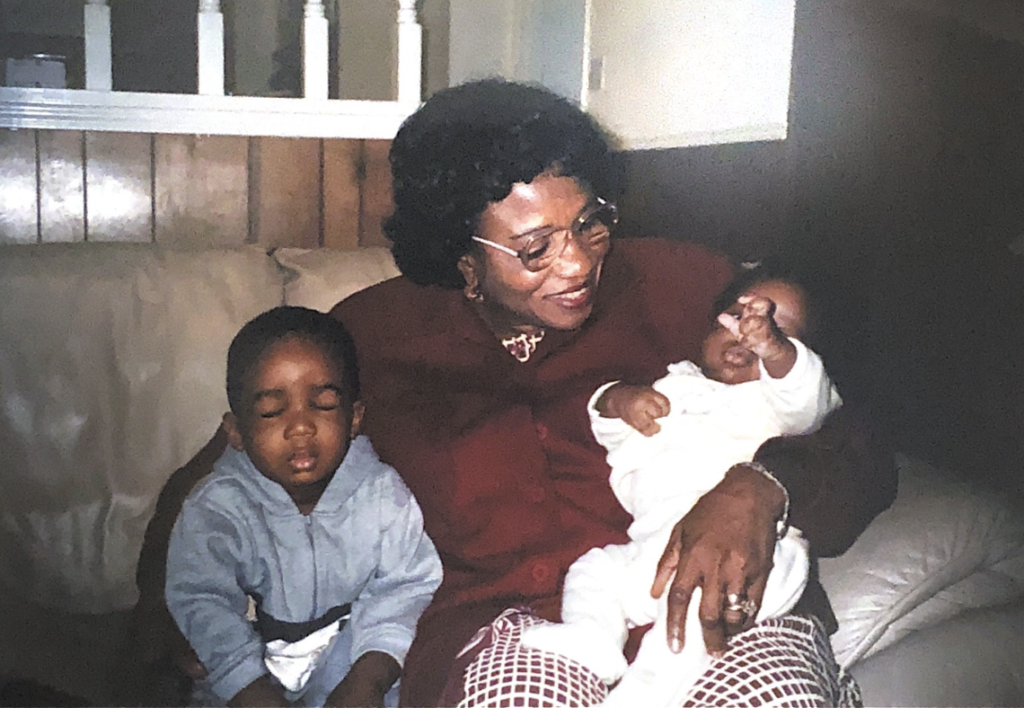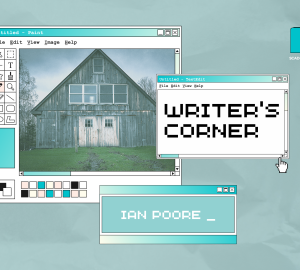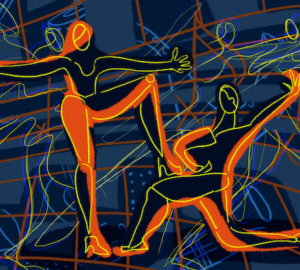I’ll remember: Reflecting on a Grandmother I never truly knew
The Connector is always looking to feature student-written essays. If interested in having your work published, please email features@scadconnector.com.
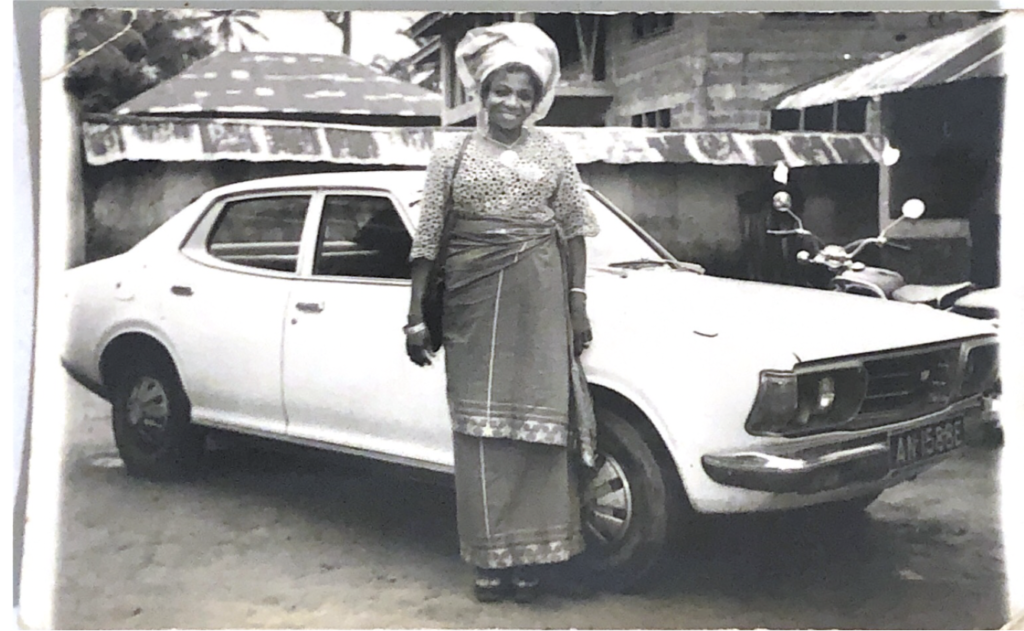
I’ll remember: Reflecting on a Grandmother I never truly knew, by Darren Okafor.
I don’t have many memories of my grandmother. In fact, halfway through writing the first draft of this essay, I realized that I didn’t even know how she died. But even though I know little about her, my memories of her are so warm and cheerful. When I was younger, I remember her telling me that I was her favorite out of my brothers and me. It wasn’t much of a contest since my older brother was notoriously known as “the bad child,” and my younger brother wasn’t old enough to speak, but I still took a ton of pride in knowing that I was her darling grandson. I remember sitting in her lap at Nigerian parties while my mom was busy on the dance floor. I remember she always had such a bright smile and that she would talk to me slowly and carefully as if I wouldn’t understand otherwise. I know she was caring and thoughtful, but when I rack my brain for examples of these moments all I’m left with are the residue feelings those memories contained.
Since she lived in the United Kingdom we only ever got to see her when she had the time and money to visit America. So, when my mother told my brothers and me in 2014 that we were going to London to visit her during summer break, we were ecstatic. We immediately began talking about the various things we wanted to do and places we wanted to see in London. But I could tell something was off. My mother’s face was rigid. She was always enthusiastic about vacations.
“I need you three to listen,” she said. “Your grandmother is sick.”
As I revised this essay, I began to feel insecure. “You wrote a whole essay dedicated to your grandmother and you can barely remember her?” I knew my feelings had to be true, but I needed more than that. I needed something tangible. So I went to the most trustworthy source for information on my grandmother – my own mom. When I asked her if I could interview her about grandma she seemed surprised but agreed. We hadn’t talked about grandma much since her death. I was nervous about how she would react to the topic. Before we even sat down to begin the interview I got one of the hardest ones out of the way.
“You know, I don’t even know how grandma died,” I said nervously.
“Really?” she replied. I nodded. “She had Parkinson’s disease.”
She began to tell me how grandma had Parkinson’s disease even before I was born. The disease had been slowly wearing on her as she got older until she couldn’t take care of herself without assistance. It felt like the case that I “knew” my grandma was getting even weaker now, and we hadn’t even started the interview. If I couldn’t tell that she was sick all those years how can I pretend that I knew her at all?
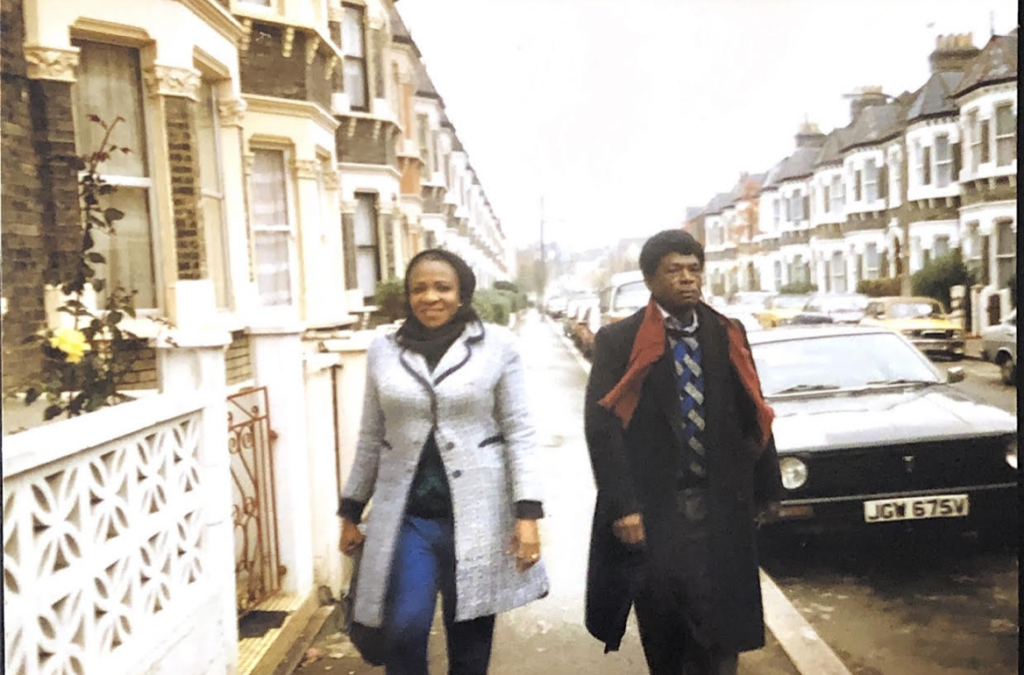
When we arrived in the United Kingdom the sky was overcast and dreary. I looked out through the rain-spattered window at the old brick and mortar buildings on the cab ride to our destination. Those buildings were probably important once, I thought. But if you asked people today they wouldn’t remember why they were built in the first place. We finally arrived at the hospice and entered grandma’s room. My grandma was sitting in a chair with tons of medical equipment behind her. We each came over and greeted her. Then, when it was my turn, I went up to her and gave her a hug. I remember how frail and thin she felt. She said my name, but her voice was hoarse and small. And she no longer had that bright smile I so fondly remembered…in its place was a tired and aged expression I had never seen her make before. I didn’t know how to feel seeing her in a weakened state like that. I was disheartened. I was anxious. But most surprisingly, I was afraid. Afraid of what my grandmother’s current state represented. How time can wither away the brightest people.
“Your grandma was a very sociable person,” my mom told me as I placed my phone in between us to record our conversation. “She was the first of five siblings, and she became the family’s mother figure when their mother died. She really was the glue of the family. Everyone loved her, and she loved the fact that everyone loved her.”
I began sifting through the box of old photographs my mom keeps in a small blue shoebox in her closet. There, I found one of my grandfather and grandmother walking together and flipped it towards my mom.
“What was grandpa like?” I asked her.
“Your grandfather was a very funny man,” she said, smiling. “He was always singing, and when he walked into a room he would always do this strange dance.” My mother stood up and demonstrated for me as we both laughed.
“He was charming, intelligent, and a bit of a player.” she said.
“Oh yeah?” I replied, interested.
“Oh yes, your grandfather loved women. He actually had an affair with another woman, and they had a son. That’s why your grandmother divorced him actually.”
I raised my eyebrows and nodded my head. I didn’t know if I should pry anymore so I looked down at my list of questions and tried to prepare a segue when my mom interrupted.
“You know it’s funny, when your grandmother found out, her and the woman your grandfather had an affair with actually became good friends.” Now my eyebrows were really raised.
“Even the son they had was closer with your grandma than his biological mother.” My eyebrows were on the top of my head now.
“When grandma died, she even called me to give her condolences.” I sat back in my chair in disbelief. “That just goes to show the type of person your grandmother was,” my mom said.
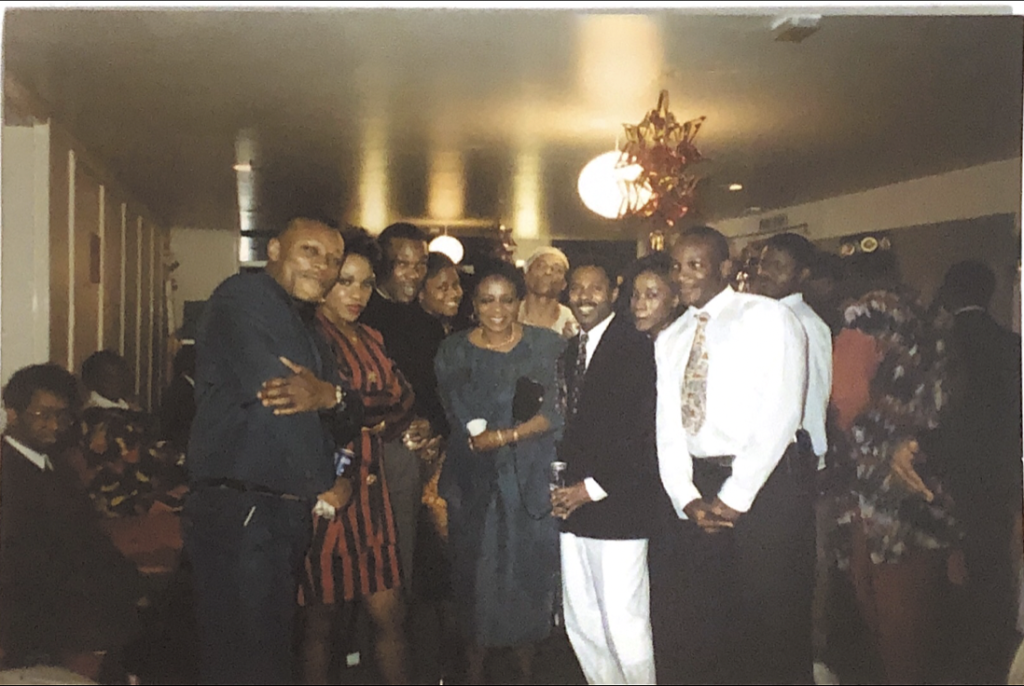
My grandmother didn’t talk much for the few hours we visited her at her hospice. My older brother and I watched TV as my mom and her sister talked privately with some nurses. Occasionally, I looked over to my grandmother, laying in her bed as if I was expecting her to suddenly get up, smile, and pretend this was all a good joke. Our vacation lasted a week and a half, and we visited her intermittingly throughout it. Each visit went more or less the same. I continued looking over at her bed. During our last visit, I remember my grandma telling me she would miss me. I told her I’d miss her too and that I couldn’t wait to come back to the United Kingdom to see her again. We got on a plane that night and arrived in Atlanta the next. That was the last time I saw my grandmother. She died that November. She was 80 years old.
“She was a great mom,” my mom told me as I listened attentively.
The sun was setting and casting an orange glow on the window blinds. I have been interviewing her for about an hour at this point.
“She was so sharp, but as she got older, the Parkinson’s really changed her,” she said. “She became much more clingy. If we didn’t call her or check up on her we were suddenly bad children and didn’t care about her.” My mom shifted in her chair and folded her arms. “I think she was upset that she had lost her independence, and that made her lonely, ya’ know?”
I sat in silence on the thought. How would it feel to go from being the life of the party to being bedridden and not able to use the bathroom without calling a nurse for assistance? I couldn’t blame her for being clingy in that situation. She was probably suffering with her own inner problems. And I wasn’t aware of any of it.
We found out about our grandmother’s passing from our mom. It was late one school night when we were about to go to bed when she broke the news. I don’t really remember having a reaction. I just kind of froze in the moment. I do remember putting the date of her death in my Instagram bio that night though. I still have that date in my Instagram bio. No matter how many times I’ve changed it, I haven’t touched that text. When I made a new account I made sure to copy the text exactly how it was originally typed. I know it sounds dumb. But I can’t explain why I’m so attached to it. This specific string of code represents itself as numbers on a phone screen. Maybe it’s the fear of losing another one of the few memories I have of her. Like if I forget this date, I’ll forget her entirely. Maybe it’s my regret of not getting to know her better manifesting itself into this strange obsession.
It was dark outside now. My interview had turned into a walk down memory lane. My mom and I talked about her childhood, how she and my dad met, and how I have two uncles that I’ve never met. All stories for another time. But it was getting time to wrap up. As I went over the transcript for the audio I recorded my mom remembered something.
“You know I’m surprised you didn’t know she had Parkinson’s disease,” she said.
I looked up at her. “Why?”
“Because whenever she came to visit us, you were always the one to offer to help her around the house. You would bring her water or food when she asked and would help her move around when she needed you to.”
My eyes widened and I couldn’t hold back the smile that was extending itself across my face.
“She would tell me that you were her favorite because of that.”
I picked up a picture of my grandmother holding my older brother and me as kids.
“I don’t remember that,” I said. I examined the picture closely as the light reflected off of it. “But now I won’t forget.”
